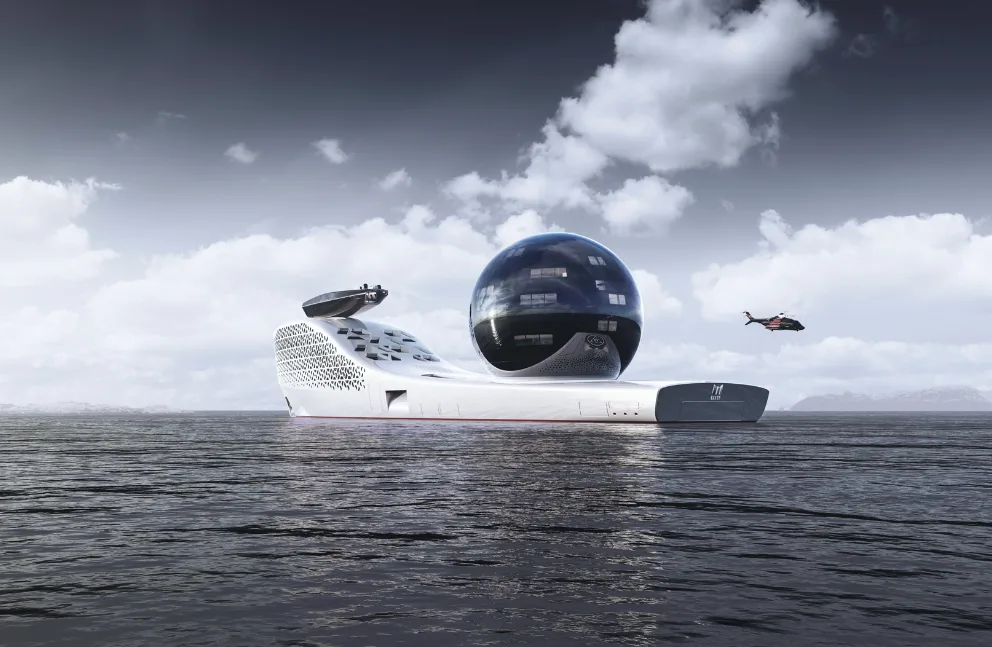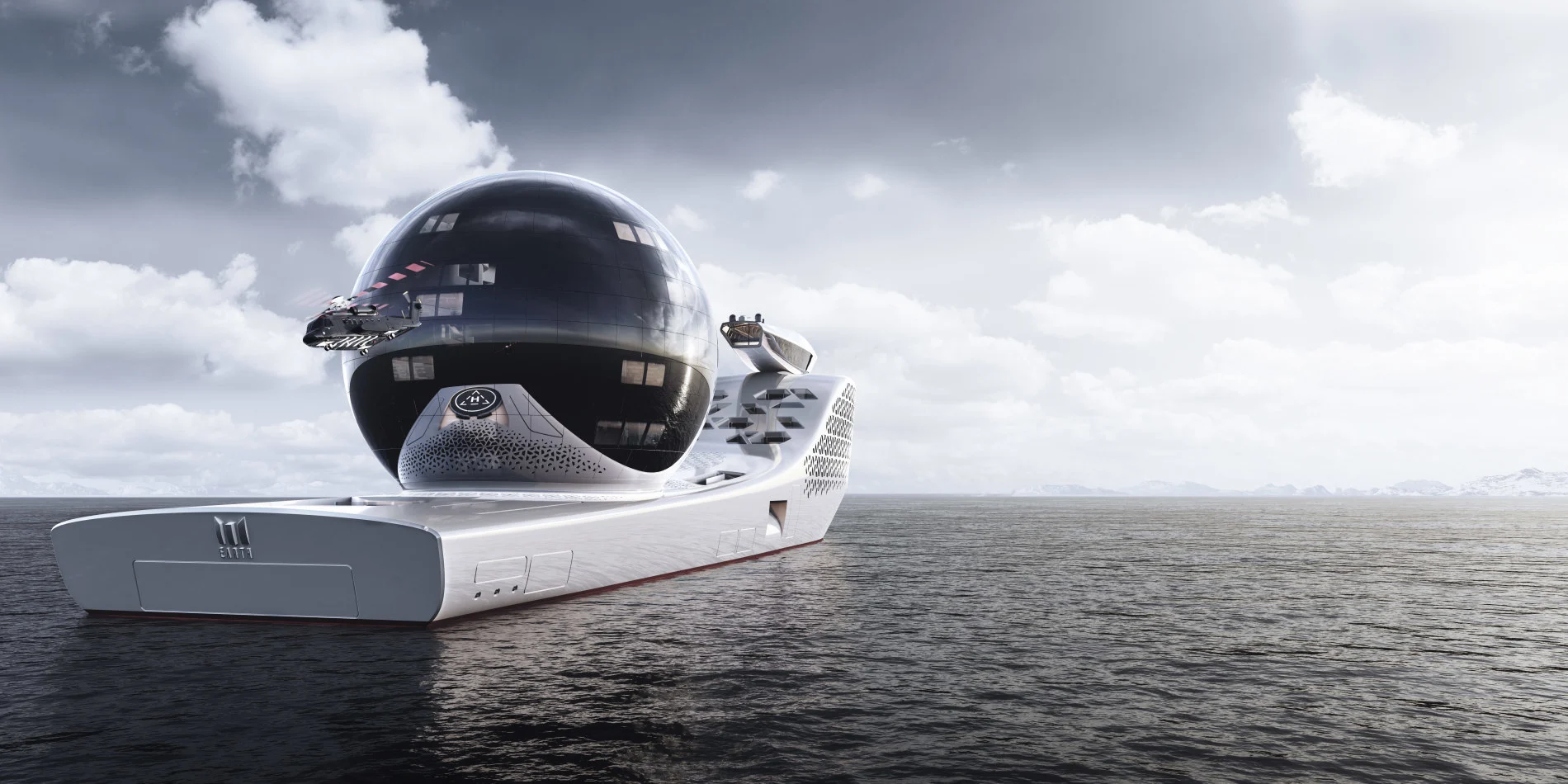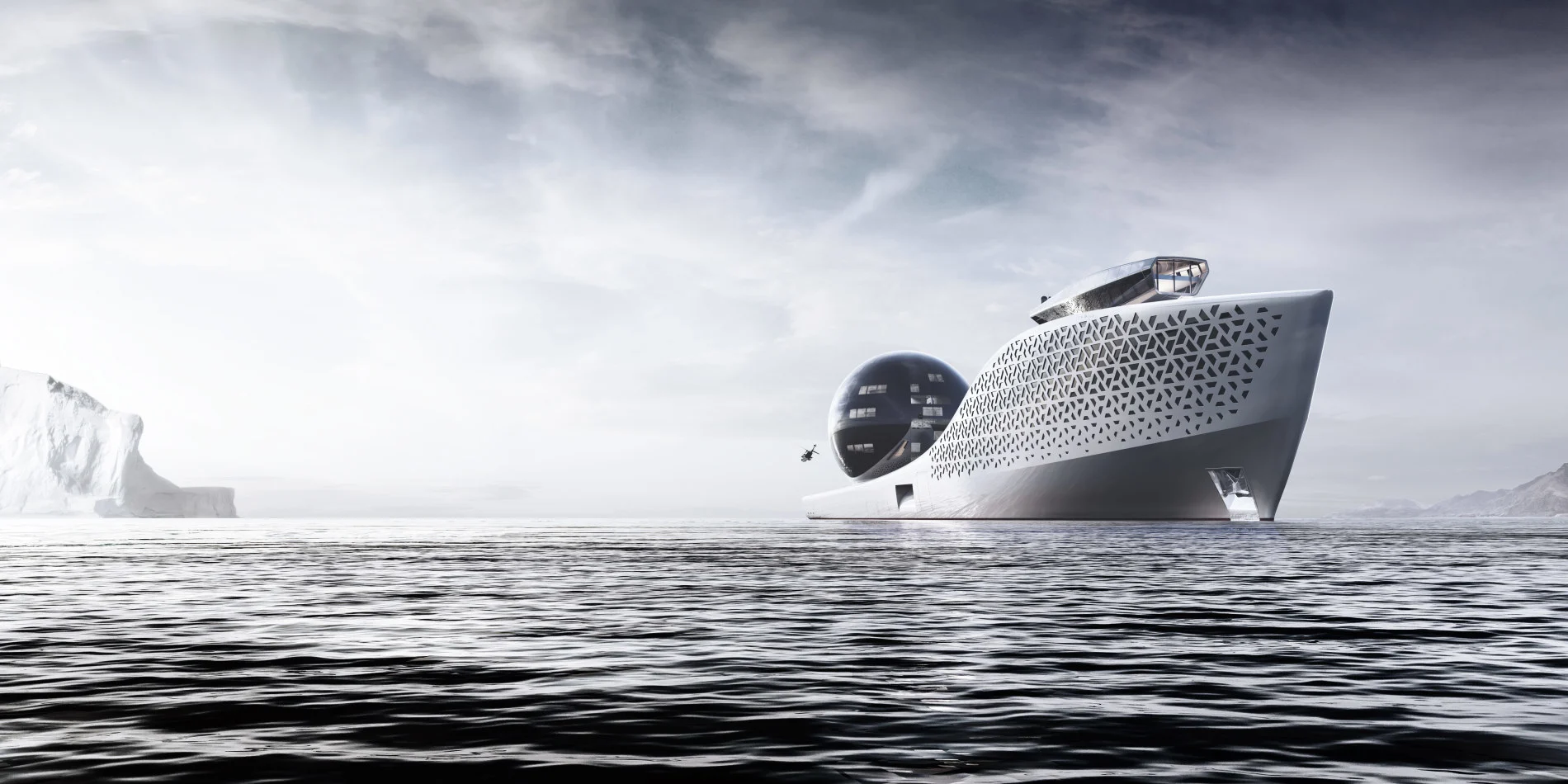
Nuclear-powered superyacht aims to host cutting-edge climate research
The extraordinary research vessel will contain over 20 scientific labs and aims to launch in 2025.
Many researchers are exploring solutions to problems like soaring greenhouse gas emissions, collapsing ecosystems, plummeting biodiversity levels — but few of them are doing so aboard a scientific superyacht. That’s where the Earth 300 comes in.
Entrepreneur Aaron Olivera and superyacht specialist Ivan Salas Jefferson designed Earth 300, a nuclear-powered exploration vessel that will stretch 300 metres long and features a 13-storey Science Sphere. The groundbreaking design includes 22 laboratories fully equipped for approximately 160 scientists that can collect and analyze data as the ship travels around the world.
In addition to accommodations for the scientists, there will be room for 20 ‘Experts-in-Residence,’ 20 students, 40 VIP guests, and 165 crew members. The company strives to foster an intermingling of the scientific community, artists, and citizens to promote knowledge-sharing and collaboration.

The company plans on featuring the latest quantum computer on board, which will be the first time this technology has ventured out to the high seas. (Earth 300)
“We are combining exploration with education so that consumers become contributors. The interaction is immediate and constant. Imagine embarking on one of the most exhilarating and meaningful voyages of a lifetime where you’ll witness the cutting edge of science – you’re sitting under the tree with Newton when the apple falls, you’re walking on the moon with Armstrong and Aldrin, you’re holding Galileo’s telescope with one hand and a fine libation with the other. You will create and imagine with some of the most eminent thinkers of the day. You’ll make history,” Earth 300’s website states.
The massive vessel will be around the same size as the world’s largest cruise ship, and powering the superyacht will require a significant amount of energy. The designers plan on using Molten Salt Reactors, a type of nuclear energy that releases zero carbon emissions.
“We have considered the Molten Salt Reactors because you can literally fuel up and go at 32 knots for 30 years without refuelling, not to mention that they are safe and sustainable. There’s no way at present that solar or wind or geothermal can deliver that,” Earth 300 told The Weather Network. However, the company says that other technologies are being considered and they will monitor how various energy sources develop over the next four years before an official decision is made.

The 300 metre vessel aims to reframe the capabilities of floating research laboratories. (Earth 300)
Some of the main areas of research that Earth 300 will focus on include energy independence, education, water and food security, global health resilience, and climate change. The ship’s Science Sphere will house the labs where this research will take place and each one will be dedicated to a specific topic, such as Indigenous maritime economies, cultures and strategies, robotics, visual arts and architecture, and quantum sciences and technologies.
The superyacht will also act as an open platform repository for oceanic and terrestrial data and aims to launch in 2025.
“Our vessel promises to reframe what a floating research laboratory can achieve. The capabilities that our scientists will have at their disposal are exceptional: artificial intelligence, robotics, machine learning, real time data processing. We will also have the latest quantum computer on board, the first to take to the high seas,” their website says.
“It is by acting together, collectively, leaving no one out, that we can achieve breakthroughs and bring the right solutions quickly to market, ensuring the survival of humanity for generations to come. Welcome to Earth 300. Come aboard and help us protect the planet.”












